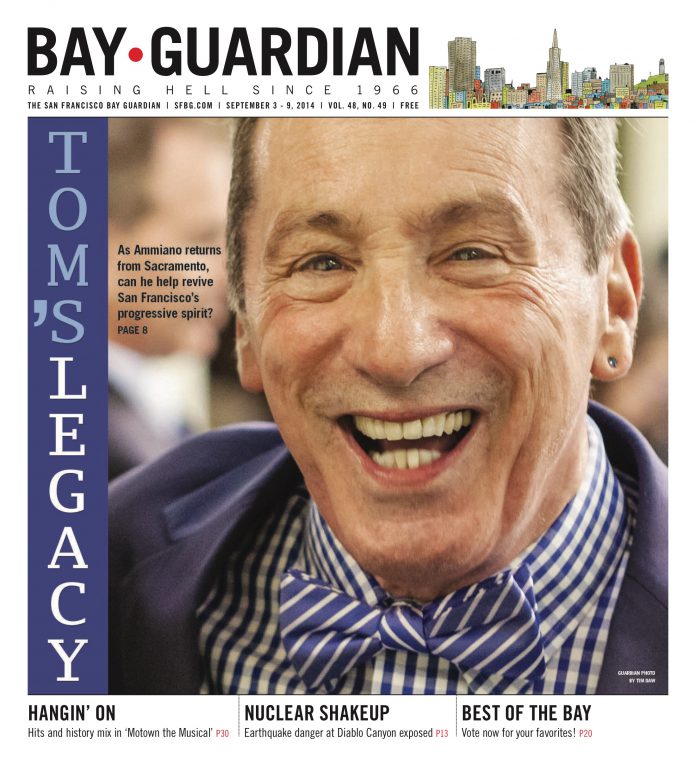OPINION Jay-Z doesn’t usually make political endorsements.
But at a recent concert in Los Angeles, he took the rare and unexpected step of endorsing a California ballot initiative. “California, build more schools, less prisons,” he rapped to the crowd, and then encouraged them to all vote yes on Proposition 47.
Jay-Z chose the right issue to speak out about. On an otherwise quiet state ballot, Californians have the opportunity to make history this fall with Prop. 47, also known as the “Safe Neighborhood and Schools Act.”
While California has long been known as an incarceration trailblazer for all the wrong reasons, Prop, 47 will give us an opportunity to reduce overcrowded prisons and bloated corrections budgets, roll back the failed drug war, and reinvest in public education.
Most importantly, Prop 47 will reduce the penalty for most nonviolent, non-serious crimes, such as drug possession, shoplifting, and bouncing a check, from a felony to a misdemeanor. These offenses are closely associated with drug addiction or poverty, and are not well addressed in prison.
This change will also be retroactive, allowing us to make amends for misguided policies. Approximately 10,000 inmates will be eligible for re-sentencing, helping to alleviate California’s notoriously overcrowded prisons. Hundreds of thousands of formerly incarcerated people with past felony convictions will have them reduced to misdemeanors, lifting existing barriers to employment and housing.
The estimated $150–<\d>$250 million in savings each year will be reinvested into K-12 education, victim compensation, and community-based rehabilitation and re-entry programs.
There are a number of reasons why Prop. 47 would be a huge step forward for California. First, we have to stop wasting money unnecessarily locking people up for long periods of time. California currently spends $10 billion on corrections, which has increased 1500 percent since 1981. Even as crime rates have fallen, corrections spending keeps going up.
The astronomical increase in prison spending has squeezed public education and services. We spend $62,000 to imprison someone for one year, while only about $9,000 per K-12 student. California built 22 prisons since 1980, but we built just one university. Imagine if both of those numbers were flipped. In light of all of our urgent priorities as a state, the cost of imprisonment for minor offenses simply isn’t worth it.
Second, prison time and felony convictions can have a devastating impact on individuals and communities. When a person is sent away to prison, they are separated from their family, community, and employment. Their time spent behind bars often leads to serious negative consequences for their physical health, mental health, and overall wellbeing. When they come out, they can face insurmountable barriers to employment, housing, and assistance.
Others feel the impact too: Hundreds of thousands of children in California have parents who are incarcerated. A recent study showed that for many kids, having a parent in prison is more detrimental to a child’s health and development than divorce or even the death of a parent.
Third, locking people up for drug crimes and petty theft is ineffective. Many California prisoners need drug or mental health treatment, not longer prison sentences. There are now three times as many people with mental illnesses in prisons and jails than there are in hospitals.
And instead of treating drug use as a health issue, we have criminalized it and enforced laws selectively, with communities of color bearing the brunt of this counterproductive war on ourselves.
California has long been one of the country’s pioneers in creative and expansive ways to lock people up. We were one of the first to pass a “Three Strikes” law, and have the unfortunate distinction of being the only prison system found by the US Supreme Court to be unconstitutionally overcrowded.
But just like our fellow citizens who made mistakes in the past, California too deserves a second chance. Prop. 47 gives us our own shot at redemption.
Prop. 47 can provide a mandate for a better California, one where we support each other and invest in our people, and put an end to misguided approaches that have been punitive and wasteful. Demanding “Schools Not Prisons,” a new California majority is emerging, one that will shape our state’s future this November and beyond.
Matt Haney is an elected member of San Francisco’s Board of Education and the co-founder of #Cut50, a new initiative to cut the prison population nationally by 50 percent in 10 years.

